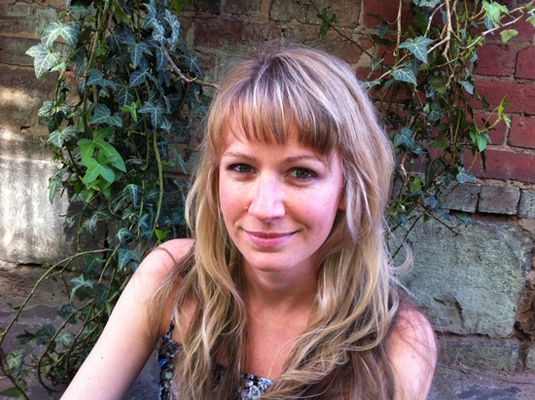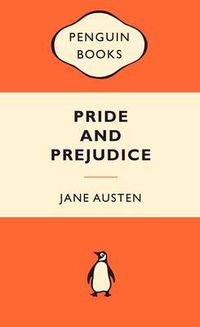I studied creative writing at university. I loved almost everything about the course: the teachers were inspiring, the readings insightful and provocative, and the workshops were a safe and temperate space.
But the exercises I hated the most – which left me sitting under the fluorescent lights, mouth agape, my mind utterly blank – were on memoir.
‘Write about your childhood,’ our tutor instructed. ‘Write about your first memory. Your worst memory. Your best memory.’
As I sat there, glumly observing my peers scratching away with thrilling intensity, I thought to myself: But I have not lived anything interesting. There is nothing about my life, or my experiences, that could form the basis of an interesting story. Jessica Mitford’s governess’s famous words pinged around my head: ‘You’re the least important person in the room and don’t forget it.’
It might seem odd, then, that my debut book, Bad Behaviour, is a memoir. But it turns out I did have a story to tell; I just didn’t, as a baby undergraduate, have the capacity to tell it.
Bad Behaviour details my experiences at a remote boarding school campus – ‘Silver Creek’ I call it – at the foot of the Victorian Alps, where I lived for a year as a fourteen-year-old.
The school is famous for its outdoor education program. At Silver Creek we went running most afternoons in the surrounding bush, ten to fifteen kilometres at a time. Weekends were spent hiking in small groups. Other times, we skied, rogained, abseiled and white-water rafted.
My story focuses largely on the relationships I formed within my house, a spartan wooden hut at furthest edge of the campus, where I lived with fifteen other girls.
Despite this idyllic setting, it was not a happy year away. Being fourteen is difficult enough; being trapped in an isolated cabin with other girls all experiencing similar feelings of loneliness, fear, and uncertainty makes for a volatile situation.
The aggression that soon manifested in our house now seems inevitable: a mix of powerful girls, some with a history of bullying, living with some of our year group’s most vulnerable, spending hours and hours unsupervised in the middle of nowhere.
Homesick, afraid and desperate to fit in, I found myself drawn to the dominant girls. And – to my horror – I found myself participating in bullying.
The memoir examines my complicity, and occasional outright aggression, and the complicated acknowledgement of this disturbing change in my behaviour. Later in the year, the same friends I had aligned myself with began to bully me.
During that year I kept a diary. I’d never kept one before – and, like so many things at Silver Creek, it was compulsory to write in this unwieldy tome every evening before ‘lights out’.
I didn’t especially enjoy writing in the diary (there was always the fear another girl might read it – we had no locks at Silver Creek, a policy that was supposed to build trust), but when it came to writing Bad Behaviour, I could have kissed every page of it. Without this document, with all its revelations, its pain and its vagaries of truth, I would have struggled profoundly to find the shape of my story, and to remember all those smaller moments that I had forgotten.
But who wants to remember being a fourteen-year-old – especially one who carried around so much shame and fear?
I recently did a radio interview and the host, after sharing that he had experienced bullying, exclaimed: ‘But why on earth would you want to write about being a teenager? I hated my school years – I would never want to go back to that time, dig up everything that happened there. I don’t like remembering the person I was then.’
This seems to be a common, and understandable, reaction from those who were bullied in their school years. But I felt compelled to dig deeper: there was a kind of urgency for me with the project, even when I knew I would be recalling unpleasant memories.
Joan Didion, in ‘Keeping a Notebook’ in Slouching Towards Bethlehem (1966), writes:
I think we are all well advised to keep on nodding terms with the people we used to be, whether we find them attractive company or not. Otherwise they turn up unannounced and surprise us, come hammering on the mind’s door at 4am of a bad night and demand to know who deserted them, who betrayed them, who is going to make amends.
I came to understand that just like Didion’s uninvited guest, my teenage self hadn’t left me at all. She had travelled into adulthood like a stowaway, and now she was getting in the way of me growing up, of finding love and happiness, and also coming to understand these shadowy events from the past.
So writing Bad Behaviour was a little like getting to know myself again. The diary was intrinsic to this – helping me plot and chart the narrative – but I spent a lot of time just thinking. Over many cups of tea I spoke to a close friend (‘Simone’ as she was named in the book) about our clearest memories of Silver Creek, as well as our darkest. ‘I think my moral backbone had grown a little earlier than yours, Bec,’ she said, not unkindly.

Didion talks about other selves in ‘Keeping A Diary’ and it makes for fascinating reading. She likes her seventeen-year-old self, but:
The other one, a twenty-three-year-old, bothers me more. She was always a good deal of trouble, and I suspect she will reappear when I least want to see her, skirts too long, shy to the point of aggravation, always the injured party, full of recriminations and little hurts and stories I do not want to hear again, at once saddening me and angering me with her vulnerability and ignorance, an apparition all the more insistent for being so long banished.
I can relate to this. When I began writing Bad Behaviour about three years ago, it was difficult to re-engage with my adult self, even though she was near past – harder, even, than it was to re-engage with the fourteen-year-old.
So writing my memoir became less cathartic than it was liberating, like a weight lifted from my shoulders. It was insightful, too – I came to learn so much about myself by travelling back to that year in the bush. There were dark days at my desk, of course. Writing about my family was particularly difficult, and occasionally sad.
But I also felt more assertive in the writing of these memories than I ever did in recalling them – the act of writing them became an act of empowerment. I couldn’t change the past, but I managed the way I related it, in and to my teenage self, for the better.





